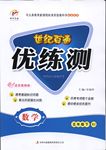题目内容
________fired,your health care and other benefits will not be immediately cut off.
A.Would you be B.Should you beC.Could you be D.Might you be
B

练习册系列答案
 世纪百通主体课堂小学课时同步达标系列答案
世纪百通主体课堂小学课时同步达标系列答案 世纪百通优练测系列答案
世纪百通优练测系列答案 百分学生作业本题练王系列答案
百分学生作业本题练王系列答案
相关题目
题目内容
________fired,your health care and other benefits will not be immediately cut off.
A.Would you be B.Should you beC.Could you be D.Might you be
B

 世纪百通主体课堂小学课时同步达标系列答案
世纪百通主体课堂小学课时同步达标系列答案 世纪百通优练测系列答案
世纪百通优练测系列答案 百分学生作业本题练王系列答案
百分学生作业本题练王系列答案